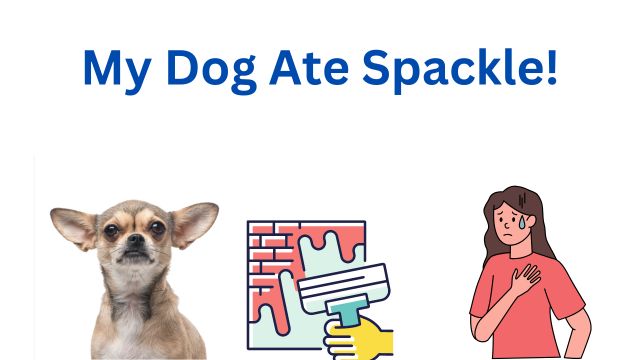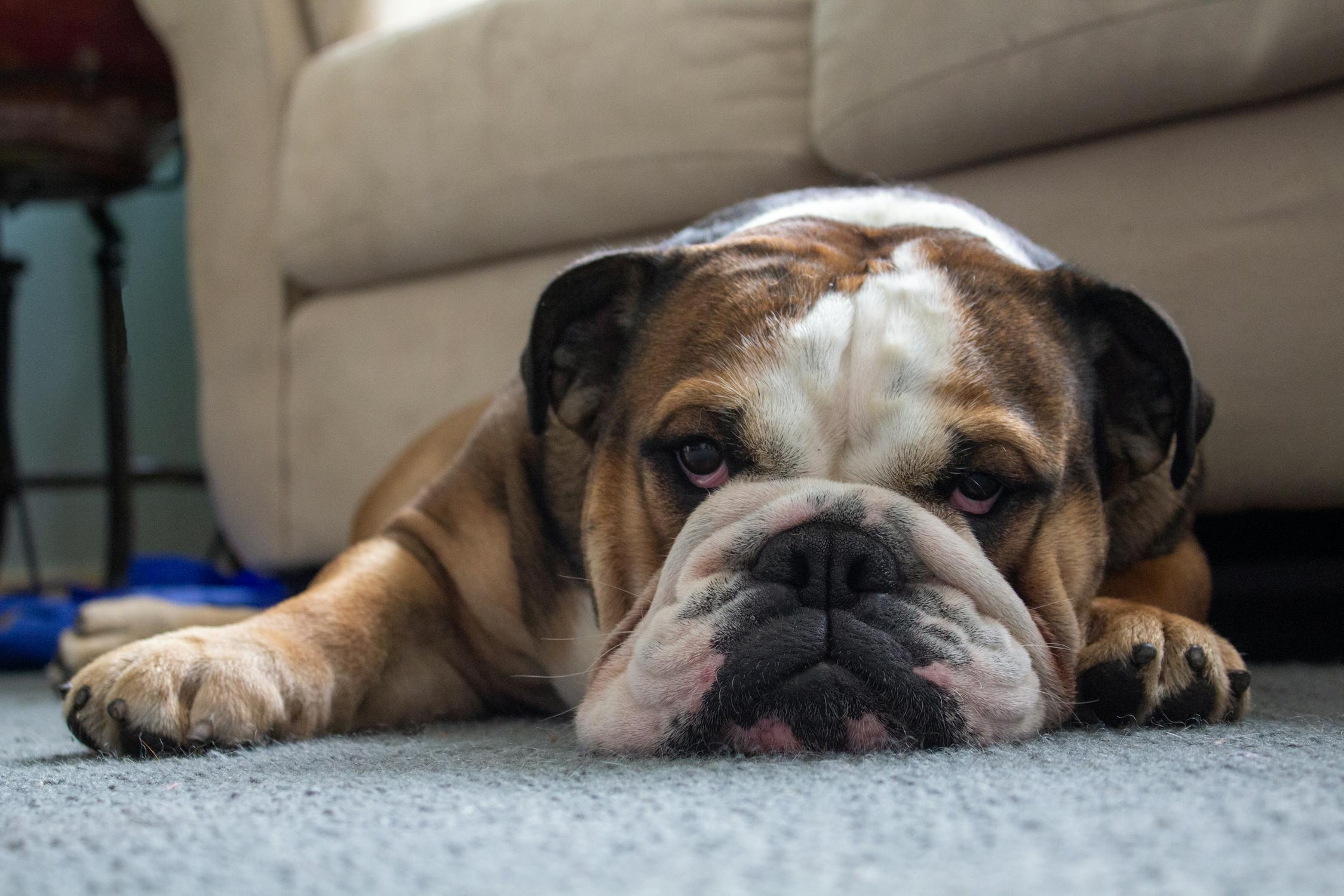When performing home repairs and other domestic construction projects, you have to take extra precautions in the event you have pets. Dogs will sidle up right next you to the whole time and chew on things like spackle, especially when you don’t pay attention.
Here, we’ll give suggestions and information on what to do if your dog ate spackle. First, you want to read the packaging to see if it indicates that it’s toxic to humans. If so, call your vet ASAP and take detailed notes about what the dog ingested and how much.
At best, they’ll have some problems with their digestion since most spackles are non-toxic, which means they shouldn’t get too serious. However, in severe cases, your furry friend may require surgery. The worst-case scenario can definitely be fatal, however.

What Is Spackle Used For?
Spackle is a popular filling product for many home repairs, especially for fixing holes or cracks in drywall. This putty-like substance can also fix plaster and wood. Oftentimes, it comprises powdered gypsum (a type of quartz), hydrated calcium sulfate, and other chemicals, like glue.
Some spackles contain the same toxic chemical used in antifreeze, ethylene glycol. The good news is, however, that the amount is very scant. Even still, a dog that consumes this will experience stomach upset to an extreme degree.
Why Your Dog Loves Spackle
Unfortunately, dogs find spackle to be an irresistible treat, both wet and dry. No one really knows why, but they sure do love the taste of spackle. When they eat it, the biggest worry will be a major gastrointestinal obstruction. Sometimes, nausea and vomiting with being symptoms of the onset.
Happily, though, most spackles aren’t toxic to dogs. They’ll simply have to deal with diarrhea and general stomach upset for about a day or so. However, if the symptoms persist for longer than two days, you must contact your vet immediately.
Large Amounts
If they ingested a large amount or big pieces, they may not pass through their digestion effectively. In this case, surgery might be in order. Smaller dogs may end up dealing with a serious toxicity issue in addition to digestive complaints regardless of the size or amount of the spackle.
Therefore, if your dog consumed a considerable portion of the spackle (dry or wet), you should go to an emergency animal clinic as soon as possible. The larger the amount, the greater the threat of toxicity and/or need for surgery.

Taking Immediate Action After Dog Ate Spackle
In the event your dog ingests spackle, first, read the packaging to see if it indicates a danger to humans. If so, contact a pet poison hotline, or your vet, or take your dog to an emergency animal clinic immediately! Depending on your situation, getting your dog to vomit will do much to save its life and digestive system.
If it’s non-toxic, you can relax a little bit. But, you should still contact your vet, especially if lethargy, vomiting, and nausea are clear symptoms. Review the following checklist for signs of intestinal blockage. If your dog exhibits at least one, consider this an emergency medical situation:
- Abdominal pain/swelling
- Choking
- Constipation
- Diarrhea
- Dizziness
- Lack of appetite
- Lethargy
- Nausea
- Vomiting
Typical Treatments
If you see your dog choking, see if you can dislodge the spackle from its throat on your own. In the case, you notice the dog swallow a ginormous chunk of it, take deliberate steps to go to emergency care.
Regardless, having your dog eat some food-grade activated charcoal will prevent any toxins from absorbing into the body. However, only administer this under the strict direction of your vet. Also, you’ll have to keep a close eye on your pooch for the first 24 hours and observe any changes in mood, diet, or behavior.
If the dog’s symptoms persist for more than 48 hours, something more serious could be setting in. This is why it’s imperative you call a pet poison hotline, at the very least, the moment you notice the dog ate spackle.
Preventative Measures
In the case you know your dog has a habit of chewing anything it can get its mouth around, keep the dog away from your repair or building project. It’s the best way to ensure it doesn’t consume anything it shouldn’t while giving you peace of mind. Put it in the yard or its kennel, for example.
Final Thoughts
If you notice your dog ate spackle, don’t panic! See how much they ate and read the manufacturer’s instructions on the package. Look for anything indicating its toxicity. Irrespective of the poison factor, call a pet poison hotline for some quick advice.
If you notice your furry friend vomiting, being lethargic, or developing a lack of appetite within 48 hours of the occurrence, then take it to the vet as soon as possible.

